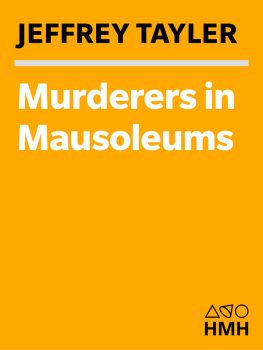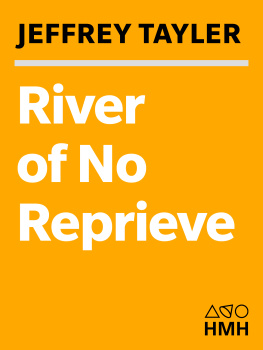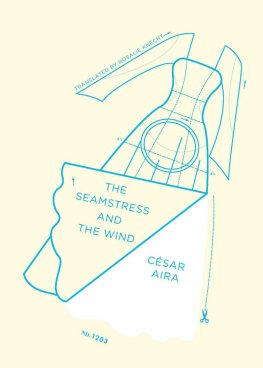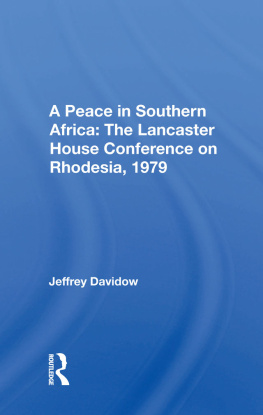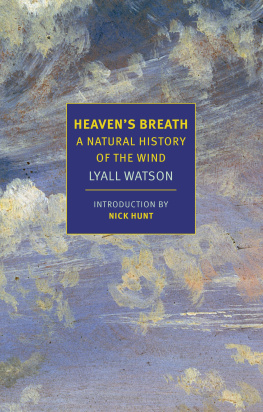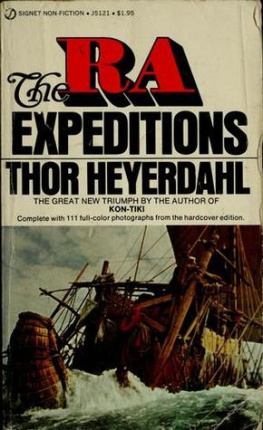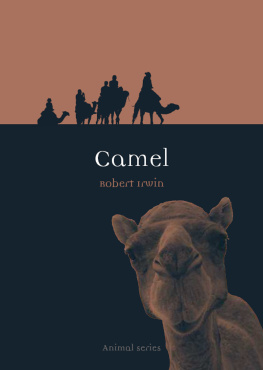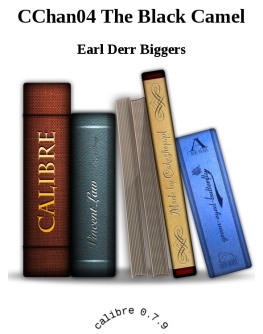Jeffrey Tayler - Angry Wind: Through Muslim Black Africa by Truck, Bus, Boat, and Camel
Here you can read online Jeffrey Tayler - Angry Wind: Through Muslim Black Africa by Truck, Bus, Boat, and Camel full text of the book (entire story) in english for free. Download pdf and epub, get meaning, cover and reviews about this ebook. year: 2005, publisher: Houghton Mifflin Harcourt, genre: Detective and thriller. Description of the work, (preface) as well as reviews are available. Best literature library LitArk.com created for fans of good reading and offers a wide selection of genres:
Romance novel
Science fiction
Adventure
Detective
Science
History
Home and family
Prose
Art
Politics
Computer
Non-fiction
Religion
Business
Children
Humor
Choose a favorite category and find really read worthwhile books. Enjoy immersion in the world of imagination, feel the emotions of the characters or learn something new for yourself, make an fascinating discovery.

- Book:Angry Wind: Through Muslim Black Africa by Truck, Bus, Boat, and Camel
- Author:
- Publisher:Houghton Mifflin Harcourt
- Genre:
- Year:2005
- Rating:3 / 5
- Favourites:Add to favourites
- Your mark:
- 60
- 1
- 2
- 3
- 4
- 5
Angry Wind: Through Muslim Black Africa by Truck, Bus, Boat, and Camel: summary, description and annotation
We offer to read an annotation, description, summary or preface (depends on what the author of the book "Angry Wind: Through Muslim Black Africa by Truck, Bus, Boat, and Camel" wrote himself). If you haven't found the necessary information about the book — write in the comments, we will try to find it.
Jeffrey Tayler: author's other books
Who wrote Angry Wind: Through Muslim Black Africa by Truck, Bus, Boat, and Camel? Find out the surname, the name of the author of the book and a list of all author's works by series.
Angry Wind: Through Muslim Black Africa by Truck, Bus, Boat, and Camel — read online for free the complete book (whole text) full work
Below is the text of the book, divided by pages. System saving the place of the last page read, allows you to conveniently read the book "Angry Wind: Through Muslim Black Africa by Truck, Bus, Boat, and Camel" online for free, without having to search again every time where you left off. Put a bookmark, and you can go to the page where you finished reading at any time.
Font size:
Interval:
Bookmark:

Copyright 2005 by Jeffrey Tayler
All rights reserved
For information about permission to reproduce selections from this book, write to Permissions, Houghton Mifflin Harcourt Publishing Company, 215 Park Avenue South, New York, New York 10003.
www.hmhbooks.com
The Library of Congress has cataloged the print edition as follows:
Tayler, Jeffrey.
Angry wind / Jeffrey Tayler.
p. cm.
ISBN 0-618-33467-x
1. SahelDescription and travel. 2. IslamSahel.
I. Title.
DT 528. T 39 2005
916.604'33dc22 2004054066
e ISBN 978-0-547-42754-8
v1.0613
NOTE: Certain names and minor identifying characteristics have been changed to protect the privacy and prevent the embarrassment of people described in this book. Specifically, the names of Ahmad and Madame X in Chapter 4, Hussein and Isa in Chapter 6, Ezekiel in Chapter 9, Mustafa in Chapter 10, Ahmad in Chapter 12, Moussa in Chapter 16, and Oumar in Chapter 17 are pseudonyms.
To my wife,
Tatyana
HARMATTAN (from the Twi haramata, a derivation of the Arabic haram, forbidden, evil, accursed):
A parching easterly wind that originates above the wastes of the Sahara and blows for days over Central and West Africa. Fills the sky with reddish-brown dust, reduces the sun to a pale orb. Exacerbates drought, cracks the trunks of trees, defoliates vegetation, prompts the acacia to ooze gum arabic. In humans, the Harmattan may aggravate respiratory illnesses and cause splits in the skin, dryness of the eyes and lips. Under certain conditions, the Harmattan fosters the spread of dust-borne diseases, including lethal strains of meningitis.

I T WAS JULY 1997. Panting and dizzy from the heat, I clambered atop the torrid sandstone brow of Dala Hill and squinted through the noontime glare at the Nigerian city of Kano below. From the hills base spread a rough-hewn maze of zigzagging sandy lanes and squat mud hovels. Farther away, to the south, stood the emerald green minaret of a great walled mosque; beyond that, from the roofs of distant earthen houses, rose stabbing, man-size crenellations that, though molded from clay, resembled nothing other than giant sharks teeth, curved and deadly.
Sarki, my Hausa guide, spread his arms and gestured beyond the houses at the land beyond: flat, tawny barrens, dotted with thorny scrub and gnarled trees, sweeping away into a blazing whiteout hazeterrain as sere and harsh as the desert but without the deserts charm.
The Sahel! Sarki declared. East is Chad, north is Niger, and to the west is Mali.
Chad, Niger, Mali... lands of famine and drought, Islam and guerilla warfare; in short, sun-bleached, barbarous realms where, for centuries, exotic kingdoms had flourished and eventually fallen to the sabers of invading Arabs and the guns of colonizing Europeans. As I stood on Dala Hill that day, that was about all I knew, or thought I knew, of those countries, but their names, conjuring up alien peoples and vague perils, stirred and intrigued me. They even seemed to present me with some sort of challenge.
Sarkis name in Hausa meant king, and he had the look of royalty about him. In his early forties, wearing long white robes and a crested white turban, with the tight skin on his gaunt cheeks and aquiline nose glistening like oiled mahogany, he possessed the imperious mien of an Islamic suzerain. As I looked at him, a flood of unfamiliar words came to mind: khedive, dey, nabob, emirlegend-laden titles of Arab and Turkish potentates of whose likes I had only read. Sarki was a Muslim, but he was black, a speaker of an African language peppered with Arabic loan words, a member of the Hausaa people about whom I knew little, except that they had resisted Western influence during Nigerias colonial days and afterward, and were among the most fervent Islamic fundamentalists pushing for the imposition of sharia, or Islamic law, in the northern states of the country.
With sweat dripping into my eyes, I followed Sarki off the hill and into the maze of old Kano. The assault on my heat-addled senses was immediate and relentless. Shrouded lepers with leaking sores and yellowed eyes swarmed around me, sticking their stumps in my face and whining for alms. Hordes of barefoot children in smocks came running to tug at my shirt and shout Masta! Masta! and rattle their tins. I winced at the sight of a man in rags ambling by, jaw agog, his teeth sprouting horizontally through his cheeks. From the dark innards of alley-side workshops came the ear-shattering pounding of hammers and the screechy creaking of looms; from the open doors of Islamic schools resounded Quranic chants as deafening as they were monotonous. Pushing my way through the crowd, clinging close to Sarki and unable to understand a word he shouted to me, I inhaled air heavy with sweat and the cloying reek of wet clay and open sewers; often I stumbled, my eyes failing to adjust to the flaming pools of white sun alternating with columns of black shade cast by the beams stretching over the alleys. I wanted nothing more than to escape.
Once we were out of the alleys and past the beggars, Sarki, strolling at ease, expounded in his bass, pidgin-inflected English on the history of Kano, or, rather, on the legend of Kanos birth. The people of Kano, like the rest of the Hausa in Nigerias mostly Muslim north, were not really Africans, he contended, but traced their lineage to a renegade Arab prince from Baghdad, Bayajida, who came here, killed a fearsome snake, married the queen, and fathered the children who would establish seven Hausa city-states, of which Kano would become the most prominent. This legend granted the Hausa a bloodline leading back to the progenitors of Islam, a religion the Hausa began accepting only in the fifteenth century after their king converted. What is certain is that the kings conversion brought close ties with Arabia and the North African Arabs who ran the trans-Saharan trade on which Kano and the other Hausa states would flourish. It also brought the Arabic language, in which the Hausa chronicled their cities history and whose alphabet they later adopted to write their own tongue.
Talking to Sarki, I would never have guessed that Islamic Kano belonged to the same country as did the city from which I had just arrived, Lagosa festive but violent, mostly Christian, and definitely African shantytown of 13 million people built on the malarial swamps and jungle lagoons of the Gulf of Guinea, seven hundred miles to the southwest. Within the walls of old Kano alcohol was forbidden and crime was rare. Kanos Hausa inhabitants, aloof and dressed in robes of green, white, and blue, exchanged formulaic Arabic greetings and mingled with indigo-robed Nigriens and visiting Libyan traders. A mercantile spirit ruled: Christian workers (Yoruba and Igbo from the south) loaded donkey carts for hectoring Muslim bosses, and every corner bustled with commerce. Only when Kanos emir, or traditional Islamic ruler, appeared on horseback to deliver his Friday sermon at the central mosque would the din stop.
The emirs word is our law, said Sarki. The federal government must get his approval before it acts in Kano.
We wandered through the dust-choked lanes in search of lion oil to cure the backache of one of Sarkis friends. Sarki introduced me to all sorts of Hausa traders and relatives. They expressed disdain for Christian southerners and blamed them for Nigerias most notorious problemsarmed robbery, drug trafficking, and fraud.
Next pageFont size:
Interval:
Bookmark:
Similar books «Angry Wind: Through Muslim Black Africa by Truck, Bus, Boat, and Camel»
Look at similar books to Angry Wind: Through Muslim Black Africa by Truck, Bus, Boat, and Camel. We have selected literature similar in name and meaning in the hope of providing readers with more options to find new, interesting, not yet read works.
Discussion, reviews of the book Angry Wind: Through Muslim Black Africa by Truck, Bus, Boat, and Camel and just readers' own opinions. Leave your comments, write what you think about the work, its meaning or the main characters. Specify what exactly you liked and what you didn't like, and why you think so.

